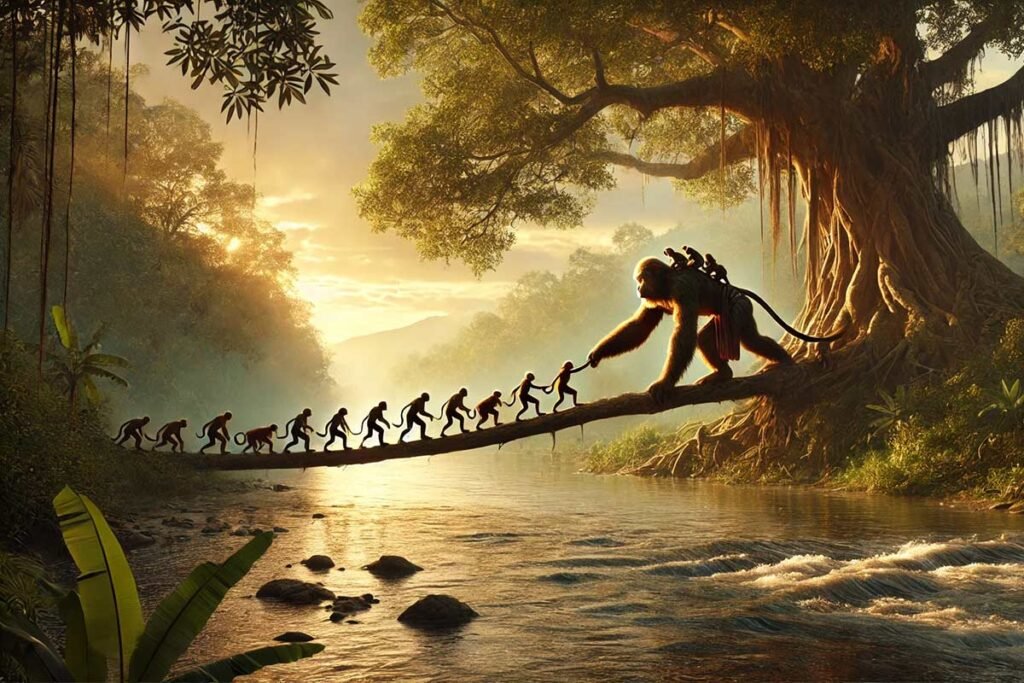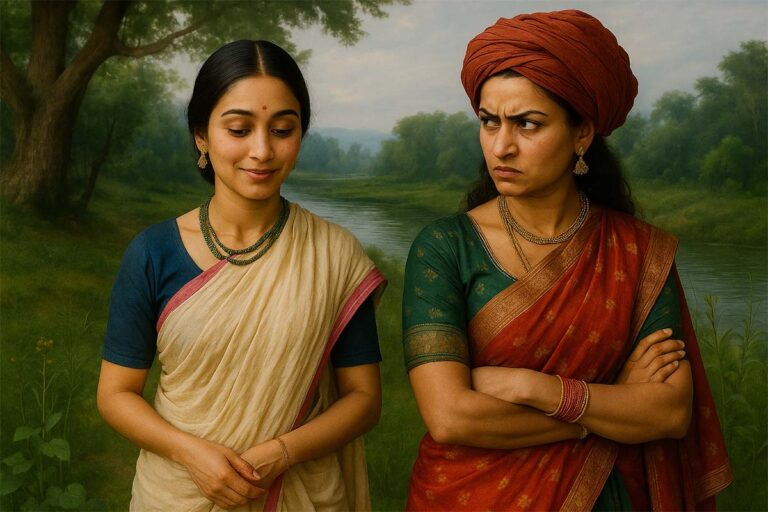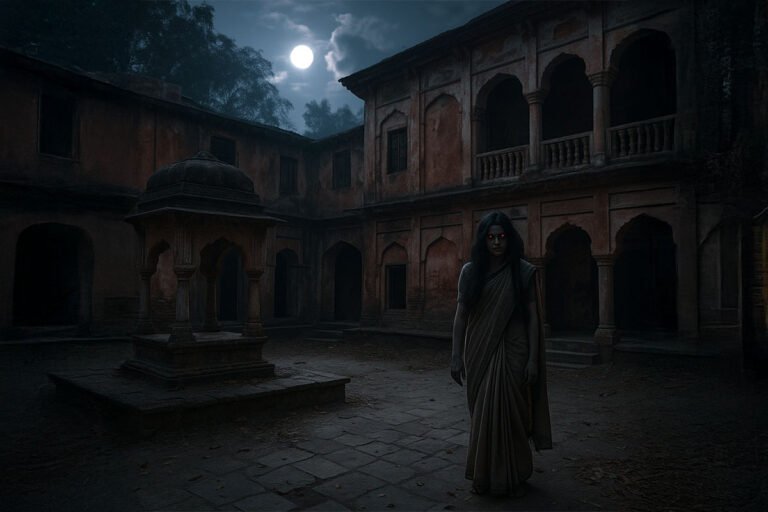Once upon a time, in the dense forests of ancient India, there lived a wise and benevolent monkey king named Bodhisattva. He ruled over a large troop of monkeys who trusted and revered him for his wisdom and kindness. The troop lived in a grove of mango trees that bore the sweetest and juiciest fruits in the entire forest. The mangoes were golden and plump, attracting not only animals but also humans from nearby villages who coveted the delicious fruit.
Bodhisattva was always mindful of the safety of his troop. He set strict rules that no monkey should let any mango fall into the river that flowed beneath the trees, for he knew that if humans discovered the mangoes, they would surely come after them. The monkeys obeyed their king and lived in peace, feasting on the mangoes while ensuring none fell into the water.
One day, however, a ripe mango slipped from a branch and plopped into the river. The river carried the mango downstream until it reached the gardens of King Brahmadatta of Banaras, who was immediately enchanted by its fragrance. The king, having tasted the mango, was so delighted by its flavor that he demanded to know where it had come from. His courtiers, following the river upstream, eventually discovered the grove of mango trees guarded by the troop of monkeys.
Driven by greed, King Brahmadatta ordered his soldiers to capture the monkeys and take over the grove. Armed with bows and arrows, the soldiers stealthily surrounded the grove under the cover of night, planning to attack at dawn. Bodhisattva, sensing the danger, quickly devised a plan to save his troop. He knew they had to escape across the river, but the river was wide, and most of the monkeys could not swim.
Without hesitation, the wise monkey king climbed to the tallest tree that extended over the river. He grabbed hold of a sturdy vine and swung across to the other side, where he anchored the vine to a large rock. The vine, however, was not long enough to reach the trees on the opposite bank. Realizing this, Bodhisattva formed a bridge with his own body, gripping the branch of the tree on one side while his feet held onto the vine on the other.
The monkeys, seeing their king’s sacrifice, began to cross the river, stepping carefully on his back, one by one. The monkey king bore the weight of his entire troop, ensuring each one made it safely across. But as the last monkey crossed, the king’s body, exhausted and strained from the burden, began to falter. Just then, King Brahmadatta arrived at the scene, witnessing the heroic act of the monkey king.
The sight of the selfless monkey moved King Brahmadatta deeply. He ordered his soldiers to halt their attack and approached the monkey king with great respect. “O noble king of the monkeys,” Brahmadatta said, “I am in awe of your courage and sacrifice. You risked your life to save your subjects, and for that, you have earned my admiration.“
Bodhisattva, weakened but relieved that his troop was safe, spoke to King Brahmadatta. “A king’s duty is to protect his people, even at the cost of his own life. My only wish is that you spare my troop and let them live in peace.“
King Brahmadatta, now filled with compassion, vowed to honor the monkey king’s wish. He ordered his soldiers to leave the grove and promised that no harm would come to the monkeys. The king also decreed that the grove would be protected as a sanctuary where the monkeys could live without fear.
Bodhisattva, though gravely injured, was at peace knowing that his troop was safe. He passed away with the satisfaction of fulfilling his duty, and his troop mourned their wise and selfless leader. King Brahmadatta, in memory of the noble monkey, kept his promise and ensured that the grove flourished, becoming a haven for generations of monkeys to come.
Thus, the story of Bodhisattva, the Monkey King, spread far and wide, teaching the values of leadership, sacrifice, and compassion. And to this day, the tale of the brave monkey king is told as an example of true nobility and selflessness.








